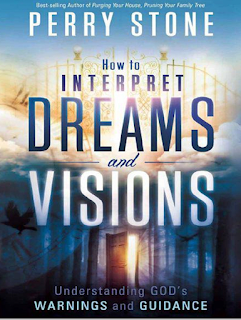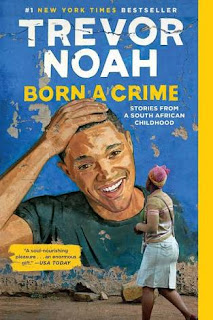Trevor Story, a South African comedian, tells his inspiring story of growing up, as a mixed child, in South Africa Apartheid. Blacks and whites were prohibited from having sexual intercourses and if it was found that a mixed child came from that union, the child was separated from his parents and put in a ‘mixed community’. The South African Apartheid was one of the worst from of colonization. The whites set up Apartheid as a strategy to eventually dominate South Africa, with all her mineral resources and bounties.
The book is divided into three parts. In part one he tells of how his mother, who was a black Xhosa South African saw the cracks in the Apartheid system and fearlessly defied all odds to conceive and bring him up as a mixed child, in a country and time where it was illegal to have one. Trevor’s mother, ‘Patricia Nombuyiselo Noah’, was daring in all she did. Her family was relocated to Soweto, the township where she lived with her mother, but she ran away from home and relocated to Johannesburg, the city where it was illegal for blacks to be seen.
She was always a fighter, a tomboy and a rebellious child, therefore her mother was confused how to raise her.
Trevor Noah too had these traits. He was really naughty and stubborn, he would always find a loop hole in silly laws and challenge these laws. He was always referred to by others (even his closest family members), as a white man. So, he could get away with crimes easily, because everyone was afraid to beat a white man (child).
It was in Johannesburg, she met the Swiss-German, ‘Robert’, who finally became Trevor’s father. She trusted no one except this man in the whole city of Johannesburg. Then she had Trevor and named him so because she did not want his fate to be decided. In South Africa, as in most African cultures, the names given to children goes so far as determining who they would eventually become. As is clearly seen in the lives of Trevor’s relatives. His cousin, Mlungisi, meaning “The Fixer”, was always fixing things. His uncle, Velile, “He who Popped Out Of Nowhere”, lived up to his name and his mum, Nombuyiselo, “She who Gives Back” and that was true, she gives and gives and gives.
Trevor’s mother clung to him not only as her child, but her partner. In Johannesburg, they could go places and see things. Even places where blacks were not allowed. She saw her life’s purpose as to feed Trevor spiritually, physically and emotionally. And this she did tremendously well, for Trevor probably never missed any prayer meeting in Church and was verse in scriptures. He was also a tremendous consumer of food and a child who lives freely (not being aware of poverty or the racism around him) and spoke freely (among both whites and nonwhites).
In part two, Trevor writes about growing up in different neighborhood and among people of different race (color). He never really fitted among people who looked like him (the coloureds), or any other people. He saw himself as black; everyone in his family whom he knew were black, except for his Swiss father. He spoke multiple languages fluently, so he could fit in with any group, but he was never a part of them. Something about him was different from being more like any one from the other groups. Therefore, Trevor found his niche, he looked for areas where he was relevant and applied himself. He was very good at it. Trevor was always finding some kind of business or the other.
At a point in grade eight, he would buy foods from the tuck shops for his school mates, at another time, he would sell pirated games to black kids and received commissions which he saved to ride a bus home instead of the usual hitch hiking. When he grew older, he found out that he could sell pirated CD’s to people, who so wanted to listen to American Jams. Fortunately for him, one of his school mate gifted him a CD writer, and he continued to upgrade his machines, which gave him more opportunities to make money. Trevor and many other black people in South Africa at that time were simply surviving the hardship of the post-apartheid, by stealing, buying and selling. During apartheid, unemployment rate was one of the lowest, because most people were slaves and being paid a miserly amount but were still gainfully employed.
In part three, he tells about his mom and her struggle and patient endurance. Trevor’s mum couldn't be seen with his father at the time, so the only thing between them was Trevor. She married a second time to a car repairer, named Abel. Abel was from the Tzaneen tribe, but lived in Orange grove, a white neighborhood, in some white family’s garage. He started seeing Trevor’s mum then, and finally moved in with Trevor and his mum. Trevor liked Abel for who he was, but never really wanted him to become his mother’s husband. But, it happened, Abel and Trevor’s mum got legally married and the product was Andrew, Trevor’s step brother.
Abel true colors started to really manifest and became unbearable for the family. He was a drunkard and would drink his profits from the car repair business he was running, and then come home, kick Trevor’s dogs, beat Trevor’s mum, and other times beat Trevor. There was no limit to what Abel would do when he was drunk.
One morning, Trevor came across an ad in the paper that some shop was having a clearance sale on mobile phones. He knew Bogani, his friend in the CD business, would make good use of that. So, he took one of Abel Junkers- a red Mazda and put a random plate number on. He was on his way to get the discounted phones when the cops pulled him over, and the next thing he was in jail.
Trevor was in jail, but he feared more of what his parents would do to him, than what the law would. Clearly, calling his parents was never an option, he called Mlungisi, his cousin (from his mother’s side obviously), and told him of the situation. The black Trevor was in prison, but he obviously looked colored (mixed). The coloreds have been known to be brutal and savage just for the sake of it.
While in jail, everyone looked tough; no one wanted to be perceived as a weakling, because they had no idea what the other person was accused of. For all they know, they could be standing next to a murderer or a rapist, and they needn’t appear weak. But it later turned out that all of them were convicted of crimes in the same category with stealing. The South African jail system was like the one in America. You are poor, and could get in the cracks, but you get caught one day for something you didn’t really know was illegal. Then you’re in jail with no one to bail you out. You’re not white, you don’t have the money to bribe, you don’t have a lawyer, and you eventually end up years in prison. But the truth is that nobody really knows your story, the only part they know is that you are black and dangerous.
Abel was so patriarchal, he restricted Trevor from visiting his father after the marriage. He always wanted to keep his reputation as the man, his heritage expected him to be. The Tzaneen tribe would forbid a man from menial jobs and always had this notion that a woman should always be beneath a man. But Abel had no money to pay for the house or send his children to school. Or perhaps he had but spent them on his liquors. A particular time when Trevor’s mother was beaten up by Abel, she went to the police to report, and all the police did was reply her in a condescending way. Their idea was that it was normal for a man to beat his wife.
In spite of all these, Patricia, Trevor’s mum still believed in him, so she started investing in his business. She even left her job to join in the car repair business, Trevor joined in too, and it eventually became the family business, but no matter the amount of time, energy and money invested, it remained helpless. The business kept draining all they had, so much that they began to live in the repair shop. Until, Trevor’s mum got fed up and got another job in real estate development and got them a house in Highlands North.
Then Andrew turned eighteen, and just when Trevor and his mom were celebrating freedom from the man that Abel was. Patricia found out that she was pregnant with Abel’s second child. Although they were legally divorced, they were still traditionally married, and he still lived in her house. Trevor no longer lived with them, his mother got him a place that was about ten minutes’ walk away from where the family lived. Later on, he moved in with his cousin, Mlungisi when he started his comedian career and was touring the country and hosting shows in England. His mom eventually had the courage to move out of the house she lived in with Abel.
Then, one Sunday morning, he got a call from his mom, but his brother Andrew was on the other end of the phone. Andrew broke the news to Trevor that his mum had been shot by Abel. Angry and shocked, he left for the hospital where Andrew drove his mother to, in tears. It turns out, they were just coming home from Church; his, mom, his step-brothers, her new husband and his children and a whole bunch of his extended family, aunts, uncles, nieces and nephews.
“They had just pulled out of the drive way…” as the book says. When Abel came out of his own car in a state of stupor, with a gun, pointing at Patricia, Andrew stepped in his way, but he ordered him to step aside. The little Isaac started crying. Abel ordered him to go to his brother, and then Abel started shooting at everybody.
Patricia jumped in front of them to shield them, and took a bullet in her butt cheek. The gun misfired for a couple of times, after which Patricia, stood up, shoved him aside and ran into the car to drive away. Abel followed after, got in the passenger’s seat and shot her through the back of her head.
The bullet went straight through to the front of her face. But it was a miracle, the bullets didn’t do much damage to Trevor’s mum. The bullet that hit her butt, gone through it, but not doing much damage. The other through the back of her head went below her skull, but above the spinal cord, it missed her brain, every major vein, artery, and nerve.
That was the end of Abel, not completely though for he still walks as a free man in Johannesburg, South Africa. He turned himself in that day, went to trial, and was set free, because he told the judge he wasn’t going to be able to provide for his children if he is imprisoned. The whole case went against Trevor and his mum.
Click
here to get the book


Comments
Post a Comment
We are sure you enjoyed this summary. Please, leave a comment!!